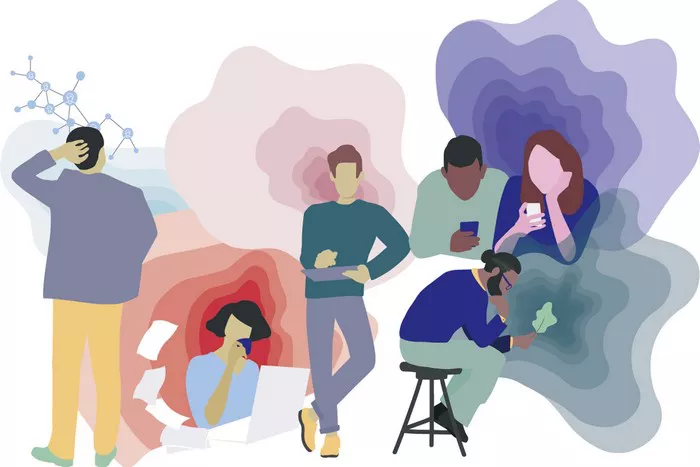The newly opened Grand Traverse Mental Health Crisis and Access Center in Traverse City is proving successful, according to officials from Munson Healthcare, which, alongside Northern Lakes Community Mental Health Authority, launched the facility to address the region’s growing mental health needs.
After years of planning and significant financial backing from the American Rescue Plan Act (ARPA) and the Michigan Health & Hospital Association (MHA), the center opened its doors on January 5. By July, it will expand to 24/7 operations, offering round-the-clock services for individuals experiencing mental health crises.
A Collaborative Effort
The center represents a partnership between Munson Healthcare and Northern Lakes, two organizations that have been working to improve the availability of mental health services across northern Michigan. The center’s opening addresses a critical gap in the region, which previously lacked a dedicated mental health crisis facility.
“We’ve had the crisis hotline and mobile crisis unit in place for years, but we’ve never had a crisis center dedicated specifically to mental health services,” said Terri Lacroix-Kelty, executive director of behavioral health for Munson Healthcare. “Now, we’re filling that gap.”
The center is located in a 22,000-square-foot facility on the Munson Medical Center campus and aims to provide a comprehensive approach to crisis intervention, including a hotline, a crisis center, and a mobile crisis unit. These elements form the foundation of a robust crisis continuum, which is key to intervening early and helping individuals before their situations escalate.
Funding and Community Impact
The center received its initial funding from ARPA in December 2022, followed by an additional $5 million from the MHA in September 2023 to enhance pediatric mental health services. In the first phase, the center operates Sunday through Thursday from 8 a.m. to 8 p.m., a “soft opening” period that allows staff to adjust and introduce the center to the community before full 24/7 service begins in July.
During this phase, services have included behavioral health assessments, crisis screenings, mobile crisis units, and peer support, all provided by Northern Lakes. Munson staff will take over operations for the second phase, which will introduce psychiatric urgent care for both adults and children.
A More Comfortable Environment for Crisis Care
One key feature of the center is its “living room model” of care, aimed at providing a more comfortable, non-hospital-like setting for those in crisis. Michael Corby, behavioral health director for the center, explains that the facility combines social workers and peer support specialists to help patients de-escalate and determine the best next steps.
“We’re focused on creating a relaxing space where individuals can calm down and get the help they need,” Corby said. “Many patients arrive with the support of family or friends, and we aim to help them navigate the next steps in a compassionate, understanding environment.”
The center’s approach is already showing results, with patient numbers increasing steadily. In its first three months, the center saw 155 contacts, with visitor numbers doubling from January to March. As 24/7 services begin in July, officials expect even higher numbers of patients seeking help.
Addressing the Larger Mental Health Landscape
The center is part of a broader strategy to reshape how mental health crises are managed in Traverse City. Munson Healthcare COO Laura Glenn noted that patients historically sought help for mental health crises at Munson Medical Center’s emergency department (ED), a less ideal setting for their needs.
“The crisis center’s proximity to the ED will make it easier for staff to refer patients to the appropriate facility for mental health care, ensuring they receive the right treatment at the right time,” Glenn explained.
Looking ahead, the center will also open two crisis residential units—one for adults and one for children—further expanding its capacity. The adult unit is near completion and is expected to open this year, while the pediatric unit is still under construction.
These residential units will provide a more appropriate setting for individuals who would otherwise be placed in an ED or psychiatric inpatient unit. By offering specialized care in a less acute environment, the center aims to alleviate pressure on Munson’s emergency department and provide more tailored support for those in need.
“The crisis residential units will allow patients to receive the care they need in a more appropriate setting, helping to reduce the strain on our ED and other hospital services,” Glenn said.
The center’s success thus far underscores its potential to transform mental health care in northern Michigan, providing essential services to those in crisis and offering new hope for a community long in need of such a facility.


